
activity review 2019/20
7,140 followers
Up 369 on previous year
454 page likes
Up 62 on previous year
521 follows
Up 79 on previous year
267 followers
Up 87 on previous year
316,963
Up 16,726 on previous year
635,940
Up 7,257 on previous year
75.1% new visitors
24.9% returning visitors

New Iriss.fm episodes published
Total number of episodes
Plays of episodes
Topics covered by Iriss.fm this year ranged from adult social care recruitment, Humans of Scotland and SSSC Careers in Care, to people’s experiences of self-directed support, issues around youth justice, and research governance in social care.
“Another fab @irissorg podcast to accompany http://careersincare.scot – Sarah, Gillian and Deborah are great ambassadors for #socialcare. No-one is saying these jobs are easy, but they are so important and could be life-changing.”
“@DW_GCHSCP is #freshlysqueezed by @irissorg Worth a listen. Thoughts on social work and public service from recently appointed new Director of Delivery, Health & Social Care Integration @HSCIntegration”

We produced eight papers for practitioners on defining particular approaches to support their understanding and reflection. Topics included: recording practice, duty of candour, Safe and Together, transformational change, co-production, the Buurtzorg model, Making Recovery Real and self-care in health and social care.
Each paper had a short insight from a practitioner about what the approach meant for them.
“Lovely case study by Lesley-Anne Exon, Staff Nurse, Forres Neighbourhood Care Team (NHS Grampian). She says it all really.”
“Good reading: A short paper on the Safe & Together approach to tackling #domesticabuse with insight from Andrea Davidson, Team Leader in a Children’s Social Work Practice Team.”

The following Insights were commissioned in 2019/20:
“Important read when the number of unaccompanied asylum seeking children is steadily increasing and more and more local authorities are supporting them.There's more than the legal implications for this group – it's also about delivering culturally competent and humble support”.
“A fantastic new @irissorg resource now available from @RaniaHamad11 who has so much practice wisdom and research knowledge in the field of addressing hate crime.”
Workshops delivered at key sector events or for other organisations
Total number of practitioners who attended sessions
Workshops covered themes ranging from co-production, outcomes and partnerships, to community social work, creative confidence and communicating with impact. These workshops supported us to build relationships in the sector, share our knowledge, and also provided us with opportunities to share our tools and resources.
"Really fascinating insight into how to communicate better – I will now restyle my presentations."
“…only half way through the event and I’ve got so many tips and tools to take back to the office and share with colleagues. I’m really keen to get my hands on that [co-production planner]. There are so many things in there to help guide our planning and make sure we are taking the right approach from the start.”
“I found the discussions and reflections to be very valuable. The tone and approach was very collaborative and within an empowering and encouraging atmosphere.”
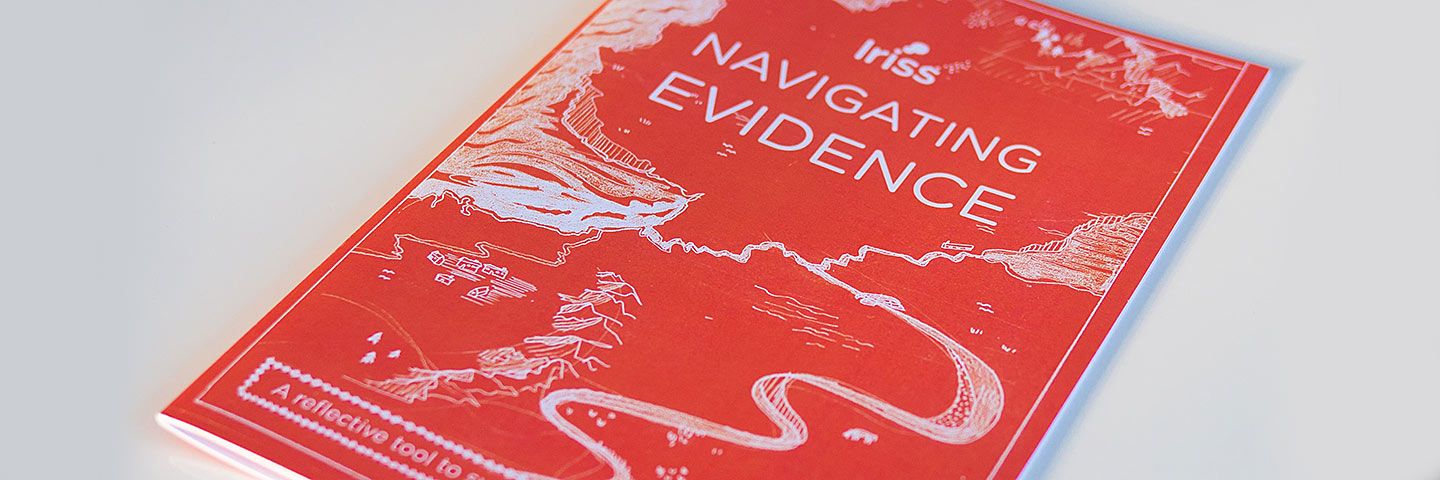
Objective: To equip new qualified practitioners with the skills to access evidence for practice, improvement and learning
Partners: Learning Network West, SSSC and NHS Education for Scotland
We collaborated with the Evidence Search and Summary Service team and partners to identify existing knowledge and resources. This resulted in a decision to create a tool to support newly qualified social workers to navigate evidence. Ideas for the tool were sketched out and shared with partners. We then sought feedback from newly qualified social workers and those supporting them in their first year of practice.
Design of the tool was an iterative process based on the tools that we co-produced in other projects such as Pilotlight. The aim was to make a reflective tool that felt easy and fun to use while expanding practitioners’ knowledge and encouraging self reflection.
The tool was officially launched in February 2020 at the NQSW conference organised by Learning Network West. Iriss delivered a one-hour introductory workshop to the tool. It was enthusiastically received by those supporting newly qualified social workers, some of who planned to incorporate the tool into their practice.
The tool:
“The latest addition to my growing #SocialWork toolkit arrived today. A quick glance and can already tell it'll be a useful resource for the future @irissorg @StrathclydeWork” – Social work student
“Found this new resource on how to use #evidence in practice published by @irissorg excellent. It is aimed at social workers but likely to be useful to many others-including researchers working with/alongside practitioners” – Researcher
The workshops:
“The navigating evidence tool was the best part of the day”
Evaluation to date suggests that the tool will contribute to improved resilience of the workforce due to increased capacity for quality conversation and critical engagement with practice.

Objective: To support the sector find and use evidence to improve practice
Partners: NHS Education for Scotland (NES), International Federation for Integrated Care (IFIC) and SSSC
The service responded to evidence queries as they came in, producing Outlines (summaries of evidence) conducting literature searches, and providing follow-up support. Over the year, ESSS worked with 10 independent and third sector organisations, and local authorities across Scotland, including Glasgow, Lanarkshire, Lothian, Dundee and Stirling.
It also supported five International Federation of Integrated Care (IFIC) webinars and contributed to a number of events, including Spring into Evidence and SSSC evidence and improvement events.
In March 2020, an online learning tool to support the workforce develop skills in finding and using evidence, was launched.
From feedback, it is apparent that our events and online learning tool increased individuals’ confidence to find and use evidence.
“Thanks, a useful and not often seen resource. Helped clarify some of the things that hold me back from writing up a paper.”
The Outlines:
“Very helpful service. Encouraging and honest feedback that provided an excellent steer and allowed me to confidently progress the project.”
“Thank you to the ESSS Service for helping to support our project which looks at how Technology Enabled Care (TEC) can be used by local systems in Aberdeen City, to support people experiencing domestic abuse – ACVO”
The ESSS Safe and Together approach Outline is being used by other local authorities to inform their Safe and Together strategy.
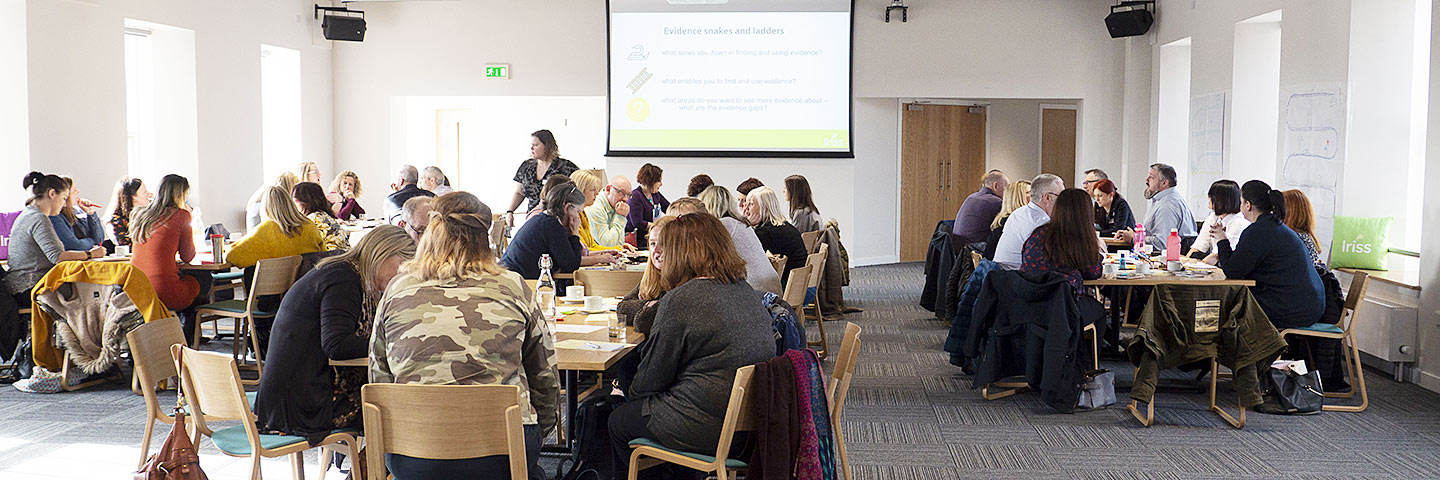
Objective: Improve the awareness and confidence of practitioners in using evidence in practice
Partners: Audit Scotland, SSSC, Care Inspectorate
This project involved the delivery of two events: an Evidence Cafe; and a full-day Spring into Evidence event.
The cafe set out to explore one of our popular ESSS Outlines: Newly qualified social workers, supervision and child protection. Over 10 people registered, but we had low attendance on the day and so refocused the delivery plan going forward.
The Spring into Evidence event focused on raising awareness about support and information available for social services workers to find and use evidence in their practice. 47 practitioners and managers attended from public, third and independent sector organisations. The day's programme consisted of a mix of plenary presentations, activities and breakout workshops with inputs from Iriss, SSSC, Care Inspectorate and Audit Scotland.
Overall the feedback from the Spring into Evidence event showed that it had offered useful information, learning, and signposting to resources and support for people who were not confident in using evidence to inform practice.
Half the participants recorded a sense of increased self confidence about finding and using evidence in practice after participating in the event. People who did not record an increase in confidence had rated themselves at the start of the day as either ‘quite confident’ or ‘confident’ with finding and using evidence. More widely people reported the breakout workshops as being helpful spaces for discussion and reflection.
This work also improved the Iriss team’s understanding of methods that engage workforce with evidence by trialling different approaches to doing this.
“Refreshed knowledge and reinforced importance of using evidence to improve services”
What people said they would do differently:
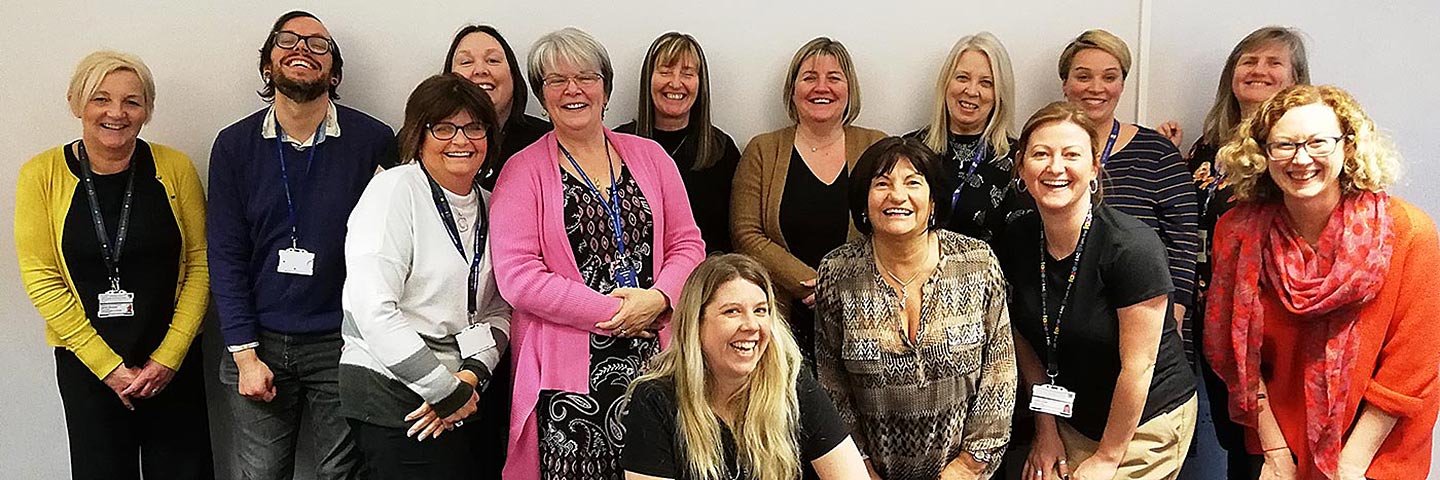
Objective: Explore and improve recording practice within a Health and Social Care Partnership.
Partners: East Ayrshire HSCP
The project engaged practitioners from the partner HSCP in workshops that were interactive, creative and ultimately produced a set of agreed principles and indicators to support making good quality case notes.
Feedback from the workshops demonstrates that practitioners felt encouraged to work with colleagues from their own service, as well as in mixed service groups. They valued being part of a project that recognised their professional knowledge, and gave them the opportunity to test out ideas to improve practice and learn from colleagues. A high level of ongoing attendance at the three workshops also showed enthusiasm and commitment to participation.Senior management have responded positively to updates from the project and anticipate taking forward embedding work based on recommendations and principles generated by the workshops. Colleagues from Learning and Development in East Ayrshire Social Work have requested to use some of the test, reflect, review tools that we developed for the workshops so that they can continue to support further recording practice ideas testing undertaken by practitioners who were part of our project.
A first iteration of a tool has been developed based on the workshops in East Ayrshire but will not be published until further development and piloting in 2020/21.
What resonates for practitioners as a result of this work:
“Because of this workshop I found myself thinking more about what and how I write.”
“It was an opportunity to talk about an aspect of our work that we usually perform uncritically/ automatically”
Working on a complex area with a diverse group of practitioners from different services brought a range of expectations and judgements about what ‘good’ recording looks like. The project also highlighted the breadth of recording for different purposes, in different settings and using different tools to do this that can be found in and across a Health and Social Care Partnership. We found early on that asking people to work on activities straight away in mixed service groups could be challenging as these differences could create a barrier to understanding.
We found that the most effective approach for activities around the ‘how’ and ‘why’ of recording was for people to work in service-specific groups. Then we facilitated discussion to draw out commonalities/ differences across service groups from there. This helped people within the same service to connect with each other and reflect on what works well in their service and ‘how they do it’. It also allowed us as facilitators to better support a whole-group conversation as we became more aware of different perspectives or understandings across services, and could support conversation to unpack this, rather than these differences staying within small group discussions and not being resolved.
Read the project reports.

Objective: Explore the impact of the Health and Social Care Standards on commissioning
Partners: No specific partners
In total 31 people registered for both events. Participants included those in commissioning roles from public, independant and third sector organisations, as well as social services organisations.
Through the first commissioners event we started to unpack the early impact of the Standards for some commissioners, and how they envisage future commissioning practice can be supported by further embedding of the Standards and other Health and Social Care Integration work.
“Really interesting conversations and better insight into how people feel about the Standards”
“Taking the headspace to think this through has made me re-focus on the value of compassionate commissioning and how I can promote this through practice”
Read the project report.
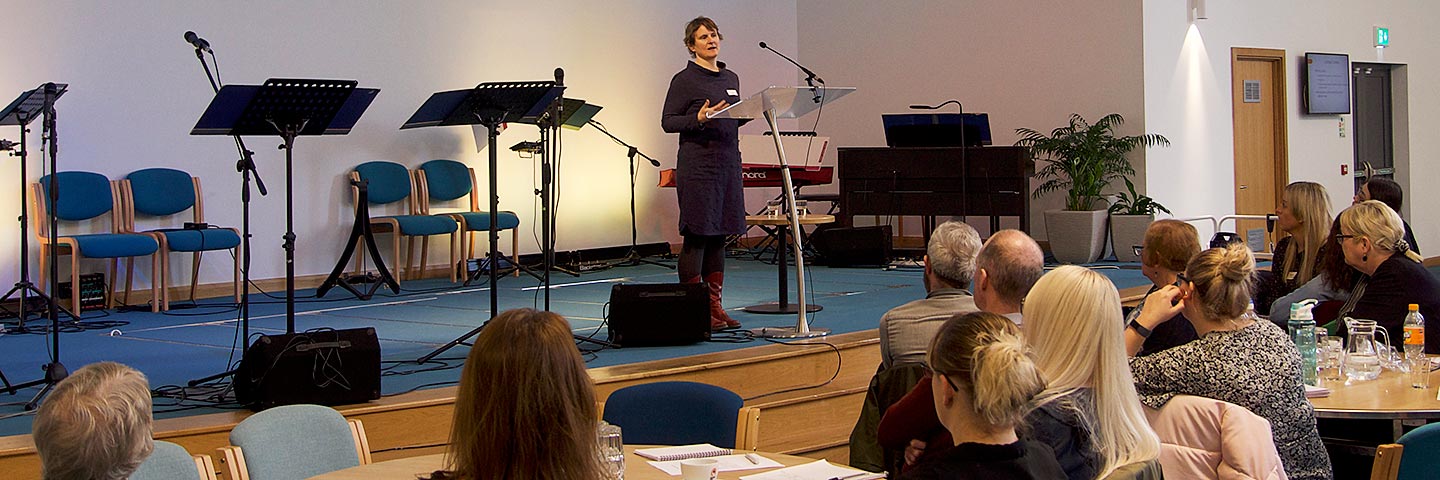
Objective: Bring social workers together from dispersed areas to celebrate rural social work, share good practice and understand how it’s different and can contribute to urban social work
Partners: Dumfries and Galloway Council, Scottish Association of Social Work, Social Work Scotland, University of the West of Scotland and Lancaster University, UNISON
There was a series of planning meetings involving partners to plan for and deliver the event on 11 March 2020.
Over 100 people attended the event on 11 March 2020 in Dumfries and 94% rated the event ‘excellent or good’ overall.
The event recognised that rural social work sits outside the mainstream and dominant discourse, and is ‘remote’ just like the areas it works in, often overlooked, under-researched or simply ‘missing’.
It provided a rare and exciting opportunity for those working in rural contexts to come together, and included contributions from across Scotland, and colleagues working in the other countries of the UK – from as far North as Shetland and as far south as Wales.
“Great to see so many attendees at Dumfries celebration of rural social work! From Orkney to France to us here in the locality #ruralsocialwork”
“At the Celebrating Rural Social Work Conference in Dumfries. Great to see so many rural local authorities staff attending to celebrate the work we do day in and day out #ruralsocialwork”
“Yesterday's #ruralsocialwork conference in Dumfries amazing – brought together over 100 mostly front line workers who don't get to such things. We shared experiences and good social work practice – hidden but always there. Well done @irissorg @ScotsSW and others.”
Discussions and plans are afoot to maintain and develop networks contingent upon future funding decisions.
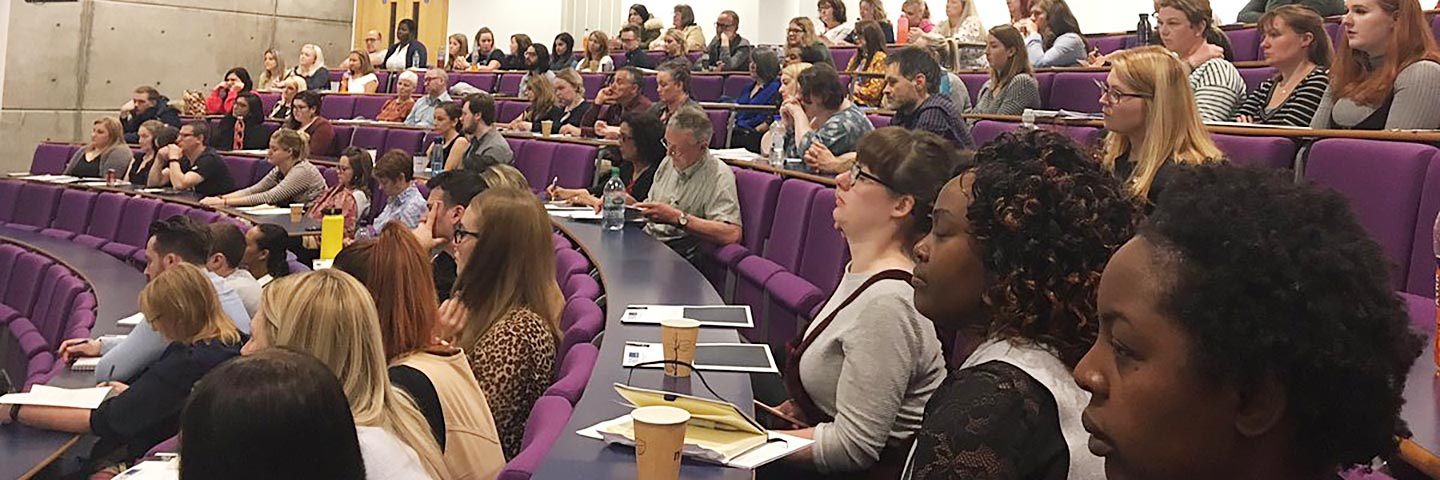
Objective: Improve the knowledge and skills of newly qualified social workers and final year HN students; have an eye to the future with key themes around person-centred and person-led care
Partners: College Development Network, the ALLIANCE, Early Years Scotland, Dundee and Angus College, University of the West of Scotland, Scottish Social Services Council, Heads of Social Work Education and OCSWA
There were numerous planning and development meetings with the various partners in respect of two events: ‘What Matters to Us Conference’ aimed at final year HN students destined for a career in social care or early years and course leaders; and ‘Shaping our Future: relationships matter’ – a conference for Newly Qualified Social Workers.
The Shaping our future conference, held on 31 May 2019 at the University of Strathclyde was a great success, with a conference report capturing key themes, messages and further links.
Unfortunately, due to the coronavirus crisis, the What Matters to Us Conference (planned for 20 March 2020) was cancelled, despite the programme being ready to go.
The colleges remain committed to working with us, and we hope to continue the annual What Matters to Us Conference and explore other opportunities for joint working, going digital to do so. We also hope that the NQSW Conference will remain a commitment for all partners as we move forward- with the one planned for May 2020 put on hold.

Objective: Mapping activities and exploring experiences of transformation and the potential offered by digital technology to improve the experiences of both citizens and staff
Partners: Scottish Government Technology-enabled Care programme, COSLA, wider Digital Health and Care Strategy partners
Overall, what was evident from this research project was a shared understanding about the importance of transformation and the potential offered by digital technology to improve the experiences of both citizens accessing and staff working in health, social care, social services and housing. There were strong opinions about the challenges posed by digital service transformation, but equally strong commitment and enthusiasm for meeting these together. There was a definite sense of progress being made and good examples of collaboration between national delivery partners and key stakeholders.
The research findings helped to shape a number of priorities and principles. These will be used as a framework for national delivery partners and key stakeholders to reflect and collaborate on present, next and future steps.

Objective: To update two short, accessible online learning resources for practitioners
Partners: Sally Wassell, Childcare Consultant and Trainer; and National Learning and Development Adult Support & Protection Group
The project involved the update of two Iriss online learning resources, including text, video content, illustration and reading lists.
Attachment theory in practice was written by Sally Wassell, an expert in attachment theory, who had co-authored our original resource in 2011.
The Online safety and wellbeing of adults at risk of harm was developed with the assistance of the National Learning and Development Adult Support & Protection Group. Iriss conducted an evidence review on this area for a practitioner working in adult protection. The evidence itself was relatively sparse, so by working with others working in adult protection in Scotland we decided the best way forward was to highlight some of this evidence, but also provide links to resources that would help others think through this area and their practice.
The evidence on the topic of attachment has been updated, with a focus on policy and implications and learning for practitioners. This was commented on by subject and policy leaders before final publication. The resource was further strengthened by including perspectives from two experienced practitioners working in the fields of adoption and fostering, and parenting and assessment. The video excerpts from the practitioners were interspersed through the text to bring to life some of the theory and the key practice points.
The online safety learning resource links to the wider adult support and protection agenda and highlights current information, evidence and help that is out there for practitioners in this area. It has resulted in a short introductory resource and also provides enough references and links for those going through the resource to explore particular areas that they are interested in. This process also helped us identify further work that we (and partners) are keen to develop around adult protection.